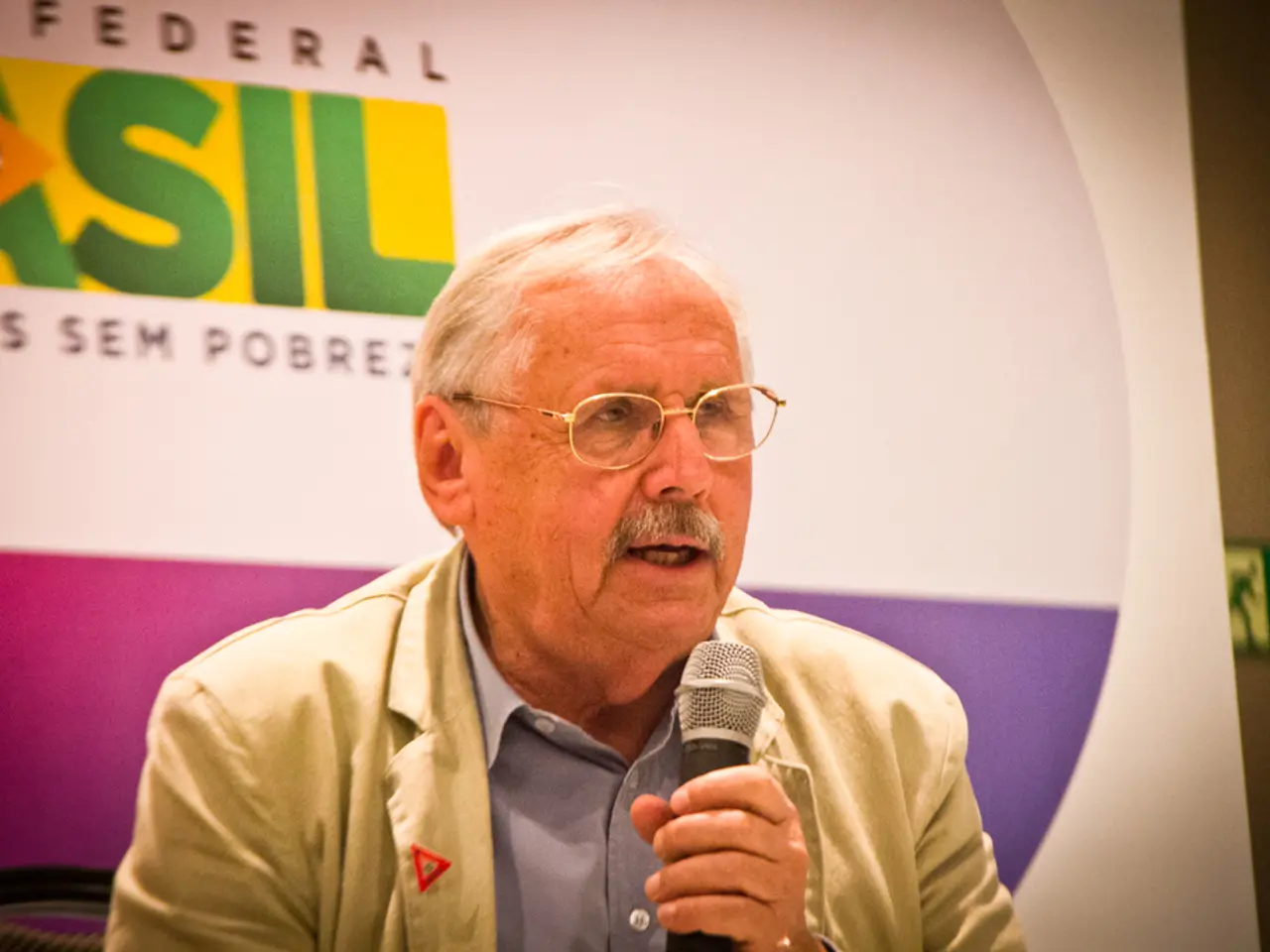Prime Minister temporarily assuming duties delivers guidelines aimed at enhancing public assistance
In a bold move to address some of the country's most pressing challenges, Interior Minister Phumtham Wechayachai has issued a series of policy directives to provincial governors and senior officials.
At the forefront of these initiatives is the fight against drug abuse. Minister Phumtham has launched an expanded version of the "No Drugs No Dealers" initiative, aiming to eradicate drug trafficking across all 76 provinces and Bangkok within three months. He has urged provincial governors to lead coordinated efforts with police and health officials, local leaders, and civil defence volunteers, to make communities drug-free. Any officials found to be failing in their duties or involved in drug trafficking will face consequences, including transfers.
Another critical issue that Minister Phumtham is addressing is household debt. He has emphasised the importance of savings and financial discipline, and proposed a special mechanism to protect citizens from illegal lenders who charge excessive interest rates. This mechanism is intended to bolster the ministry's role in grassroots economic development.
While there is no direct mention of emergency aid disbursement in the minister's directives, his emphasis on faster and effective government responses suggests a potential focus on improving emergency aid delivery.
In the realm of technology, Minister Phumtham has called for the adoption of technology to streamline tasks and improve service delivery, although specific technologies or systems were not detailed.
Each province, according to the minister, should identify its strengths and find ways to build on them. He has also urged provincial governors to act as "commanders" in the battle against narcotics.
However, there are challenges that need immediate attention. The slow disbursement of financial support to those affected by the Thai-Cambodian border conflict and the delays in the disbursement of financial aid to flood-affected communities in Chiang Rai have attracted attention.
Minister Phumtham has also defended a recent ministerial order easing poker restrictions, stating it was not part of an effort to legalize gambling in general. The easing of restrictions allows poker to be played as a sport, still governed by an authorised association.
In summary, Minister Phumtham is driving urgent, coordinated, community-involved efforts to combat drug abuse, protecting citizens from predatory lending, and promoting the use of technology to expedite government functions for public benefit. His actions underscore a commitment to addressing the country's crises and ensuring the implementation of government policies at the grassroots level.
- In light of the minister's call for the adoption of technology to streamline tasks and improve service delivery, it's plausible to anticipate policy-and-legislation focusing on technology-based general-news, particularly relating to personal-finance and economic development.
- The slow disbursement of financial support to those affected by the Thai-Cambodian border conflict and the delays in the disbursement of financial aid to flood-affected communities in Chiang Rai have raised concerns about effective government responses, which aligns with the minister's emphasis on faster and effective aid delivery.
- The minister's defense of a ministerial order easing poker restrictions suggests a potential intersection of politics and crime-and-justice, as they relate to policy-and-legislation, with the minister emphasizing that the easing of restrictions is not intended to legalize gambling in general.




